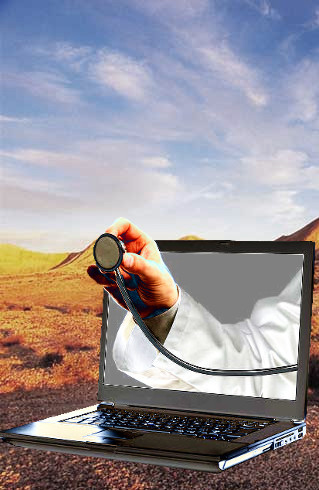Symptom searches often fail
 A new report shows ‘Dr Google’ is almost always wrong.
A new report shows ‘Dr Google’ is almost always wrong.
Many people look online to self-diagnose their health symptoms and seek medical advice, but internet-based symptom checkers are only accurate about a third of the time, according to new research.
The study analysed 36 international mobile and web-based symptom checkers and found they produced the correct diagnosis as the first result just 36 per cent of the time, and within the top three results 52 per cent of the time.
The research also found that the advice provided on when and where to seek health care was accurate 49 per cent of the time.
It has been estimated that Google’s health related searches amount to approximately 70,000 every minute. Close to 40 per cent of Australians look for online health information to self-treat.
Lead author Michella Hill said the findings should give people pause for thought.
“While it may be tempting to use these tools to find out what may be causing your symptoms, most of the time they are unreliable at best and can be dangerous at worst,” she said.
“We also found many of the international sites didn’t include some illnesses that exist in Australia, such as Ross River fever and Hendra virus, and they don’t list services relevant to Australia.”
Online symptom checkers may be providing a false sense of security, Ms Hill says.
“We’ve all been guilty of being ‘cyberchondriacs’ and googling at the first sign of a niggle or headache,” she said.
“But the reality is these websites and apps should be viewed very cautiously as they do not look at the whole picture – they don’t know your medical history or other symptoms.
“For people who lack health knowledge, they may think the advice they’re given is accurate or that their condition is not serious when it may be.”
But, the researcher says, online symptom checkers can have a place in the modern health system.
“These sites are not a replacement for going to the doctor, but they can be useful in providing more information once you do have an official diagnosis,” Ms Hill said.
“We’re also seeing symptom checkers being used to good effect with the current COVID-19 pandemic. For example, the UK’s National Health Service is using these tools to monitor symptoms and potential ‘hot spot’ locations for this disease on a national basis.”







 Print
Print